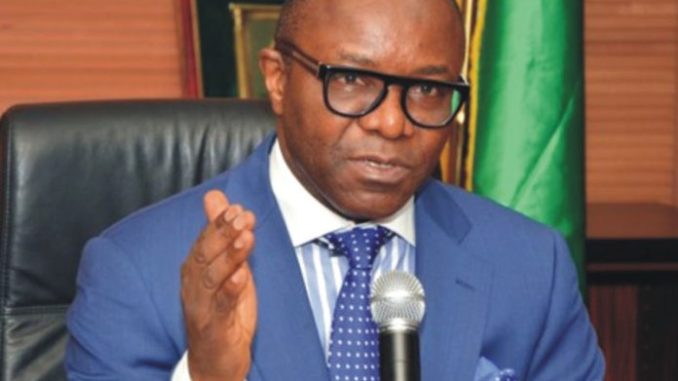
For Nigeria to meet the 2016 oil benchmark, a total of 3.1 million barrels of crude oil production per day needs to be achieved, Ibe Kachikwu, minister of state for petroleum resources, says.
Kachikwu made this known on Monday night, when he spoke with Richard Quest on CNN’s Quest Means Business.
According to the minister, Nigeria needs to produce as much as 900,000 barrels of more crude per day to cover for lost crude as a result of militant activities in the oil producing region of the country.
“It is a difficult time, production is about 1.5 million barrels a day, but we intend to get that up. We are putting a lot of energy around it, a lot of dialogue, a lot of engagement, a lot of security meetings to try and resolve it.
“President Muhammadu Buhari is very concerned about these things, a lot of executive time is being given to this. We are expecting that over the next one month, two months, we would find some final solution that would bring production upward.
“Beyond that, the reality is that we have lost a lot quite a lot of months, about five, six months of continuous problems. so it is going to be difficult to catch up with the 2.2 million barrels on which the 2016 budget is based.
“But we are certainly going to try, once things are calmer. We need an average of 900,000 barrels per day, excess production to catch up. That is going to be very tough, but we are going to work on that,” the minister said.
It could be recalled that, when the budget was signed into law, Nigeria benchmarked it against a production capacity of 2.2 million barrels daily, but has fallen short of that since February, as a result of pipeline vandalism by militants.
Equally, the Organisation of Petroleum Exporting Countries (OPEC) quota prevents member countries from exporting all their output.
Kachikwu however said “he does not think OPEC meeting in Algeria in September, can upturn crude oil prices on the globe,” pointing out that OPEC only controlled 30 percent of global oil produced, as the OPEC would have to meet with the other 70 percent producers to deal with oil market instability.
Kachikwu also denied that the Federal Government was paying more attention to protecting oil facilities than to recovering the over 200 missing schoolgirls from Government Secondary School, Chibok.
On the criticism that the President Muhammadu Buhari-led administration was leaving the northeast for the Niger Delta to guide pipelines, adding that this means, “the oil is better than the human.”
Kachikwu responded, saying, “not quite so, at all. On the contrary, since President Muhammadu Buhari resumed, I think his first steps were targeted at the northeast and the Chibok girls.”
“If you remember, most of his first state visits were to neighbouring countries, trying to gather alignment among neighbouring countries military forces in fighting this issue, and the military has been engaged in that territory.
“One of the crisis the president had to inherit, was the fact that once he came in, he found that monies that were allocated to the military to be able to deal with these issues, were largely diverted, and he spent a lot of time trying to find funds.
“He first had to deal with that problem, but once he dealt with that, the army has got more brisk in its business, however, we haven’t found the girls and its sorrowful for every Nigerian who thinks about it.
”I have children, the last thing I want is for people’s children to be in the forest abandoned, and we are doing everything we can, I sympathise with all parents who are in this situation, but the president hasn’t given upon this”, he submitted.
– Business Day